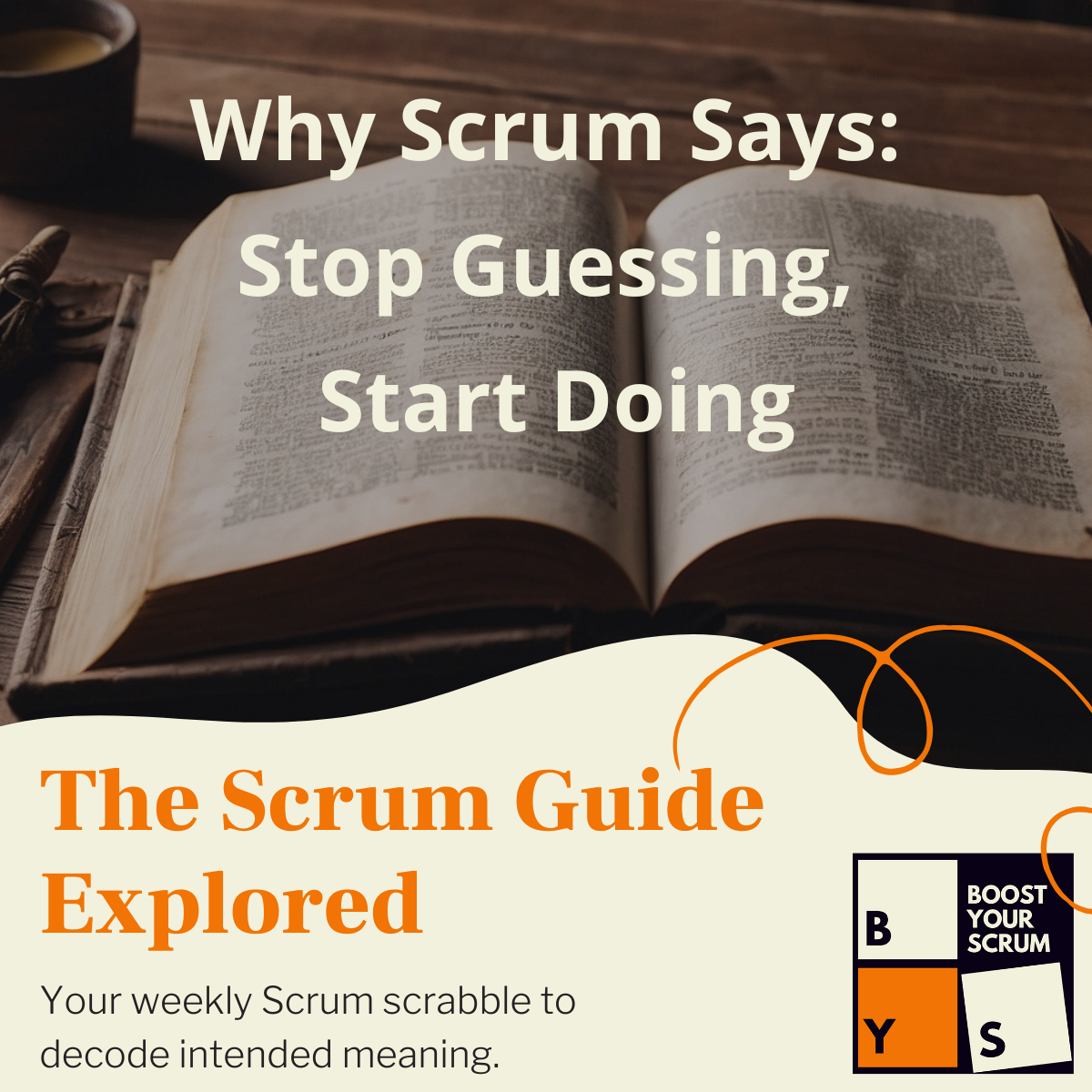What if everything your team “knows” is just a guess?
“Empiricism asserts that knowledge comes from experience.”
That’s a strong claim. Let’s unpack it.
To assert is “to say something is certainly true” or “to state a claim forcefully.”
So Scrum isn’t flirting with the idea of learning-by-doing—it’s standing on it, firmly.
So what is knowledge?
Cambridge Dictionary:
Knowledge = “Skill in, understanding of, or information about something, which a person gets by experience or study.”
And yes, study is part of it—“to learn about a subject, especially in an educational course or by reading books”.
But Scrum doesn’t lean on study.
Scrum asserts: Knowledge comes from experience.
Experience = “knowledge or skill from doing, seeing, or feeling things”.
Not reading about an industry.
Not drawing beautiful process diagrams.
Actually building. Testing. Seeing real people use your work—and adapting based on that.
Here’s the kicker: I love to read books. I’ve taken courses. But let’s be honest—most of that fades fast unless I’ve applied it. Unless I’ve experienced it.
You too? Yep. Studies confirm it.
So why do so many teams spend months in upfront analysis and design before doing, seeing, and feeling?
Why do we try to know before we act, when Scrum tells us: act, then know?
Empiricism flips the script.
It says: “You won’t know what works until you try. So try. Often.”
Scrum doesn’t block study—but it builds on action.
So here’s the reflection:
Where in your product development are you still trying to “know first, do later”?
When did your team last say, “Let’s try it and see what we learn”?
Stop mistaking planning for progress.
Scrum asserts that knowledge comes from experience.
Time to start experiencing.
Where has your team learned more—from doing or from planning?
I’d love to hear your thoughts in the comments below!
I hope you find value in these short articles and if you are looking for more clarifications, feel free to make contact.
Don't want to miss any of these blog posts? Have the “The Scrum Guide Explored” series weekly in your mailbox.
Wishing you an inspiring read and a wonderful journey.
Scrum on!

